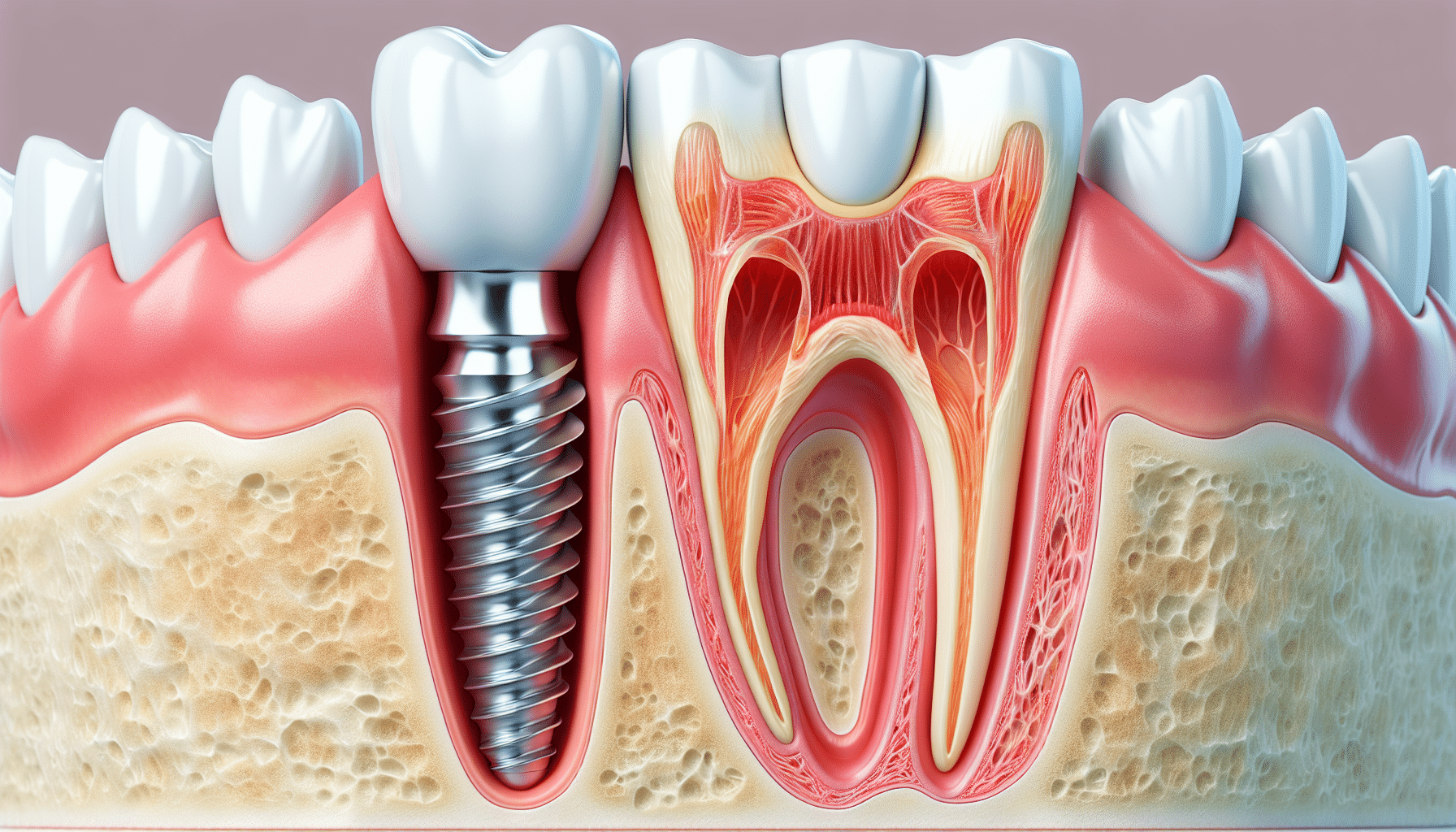All about Dental Sense
Table of ContentsSome Ideas on Dental Sense You Need To KnowThe Main Principles Of Dental Sense The Ultimate Guide To Dental SenseUnknown Facts About Dental Sense
are medical gadgets surgically dental implanted into the jaw to bring back a person's ability to chew or their appearance. They provide support for fabricated (fake) teeth, such as crowns, bridges, or dentures. When a tooth is lost as a result of injury or disease, a person can experience complications such as quick bone loss, defective speech, or adjustments to eating patterns that lead to discomfort.Dental dental implant systems include an oral implant body and oral implant joint and might also include an abutment addiction screw. Dental implant vs bridge. The dental implant body is operatively put in the jawbone in place of the tooth's root. The oral implant abutment is usually affixed to the implant body by the abutment addiction screw and prolongs through periodontals right into the mouth to sustain the attached artificial teeth
Cigarette smoking may impact the recovery process and reduce the lasting success of the dental implant. The recovery process for the implant body might take several months or longer, during which time you generally have a short-lived abutment instead of the tooth. the oral implant treatment: Meticulously follow the oral hygiene directions offered to you by your oral service provider.
The Of Dental Sense
Implant failure can result in the demand for another procedure to deal with or replace the implant system. Recovers the capability to eat Brings back aesthetic look Assists keep the jawbone from diminishing due to bone loss Protects the wellness of the surrounding bone and gum tissues Assists keep adjacent (nearby) teeth secure Improves lifestyle Damage to bordering all-natural teeth during dental implant placement Injury to the surrounding tissues during surgical treatment, such as sinus perforation Injury during surgical procedure (for instance, fracture of bordering jawbone) Inadequate feature, such as seeming like the teeth do not attack with each other normally An experience that the tooth hangs or twisting in position resulting from an abutment screw loosening up Implant body failing (looseness of the dental implant body) as a result of systemic infection, which may be most likely in patients with unrestrained diabetes due to read this regional infection in bone and gum tissues supporting the dental implant body due to postponed recovery, which might be more probable in patients who smoke Difficulty cleaning the periodontals around the dental implant, leading to poor dental health Untreated gum condition Post-surgical feeling numb due to nerve impingement or damages Constantly notify healthcare providers and imaging technicians that you have dental implants before any type of magnetic vibration imaging (MRI) or x-ray treatments.
FDA is not knowledgeable about any unfavorable occasions reported for MRI or x-ray treatments with oral implants. Oral implants systems are normally made of materials that comply with worldwide agreement requirements of the International Organization for Standardization (ISO) or ASTM International. These criteria have details of what makes a safe product.

A dental implant is a framework that replaces a missing tooth. With screw-like devices, the surgeon inserts a dental implant into the jawbone, and it works as an anchor for a fabricated tooth, called a crown. A gadget called a joint attaches the man-made tooth to the oral implant. The crown is tailor-made to fit the person's mouth and match the shade of their teeth.
Top Guidelines Of Dental Sense
Some people are not qualified for oral implant surgery. It is for dental doctors to run on individuals with: acute illnessuncontrollable metabolic diseasebone or soft cells condition or infectionIf these issues are resolved, a person can have the surgical procedure. In, dental specialists avoid operating on individuals with: If people with any of the above go through oral implant surgical treatment, there is a higher risk of the implant failing.

Oral dental implant surgery is a tailored process. It's not the very same for everybody. However the adhering to gives a basic introduction of what you can anticipate your dentist, dental cosmetic surgeon, periodontist or prosthodontist to do: Place the implant operatively. Offer you time to recover. Attach the message and final crown, bridge or denture.
Next, your doctor will carefully position the dental implant right into your jaw. Your cosmetic surgeon will certainly rearrange your gums and shut the laceration with stitches. If your implant is near the front of your mouth, your dentist will make a short-term tooth for you to put on until you heal. In this way, you won't have a gap in your smile while you recuperate.
How Dental Sense can Save You Time, Stress, and Money.
Throughout the recovery stage, your jawbone should fuse to the oral implant. This process can take anywhere from 3 to nine months.
As soon as your implant heals, your dental practitioner can affix the abutment (tiny port post) and your last repair (crown, bridge or denture). This normally takes concerning one hour to finish and may require a second small surgical treatment. You should not feel any kind of discomfort throughout your dental implant treatment due to the fact that your company will use medicine to numb your periodontals.
Comments on “Little Known Questions About Dental Sense.”